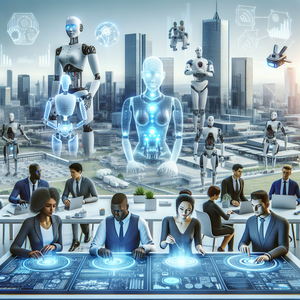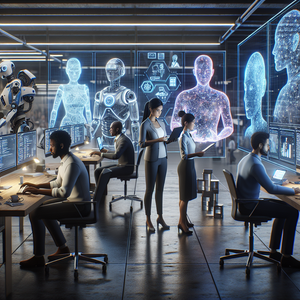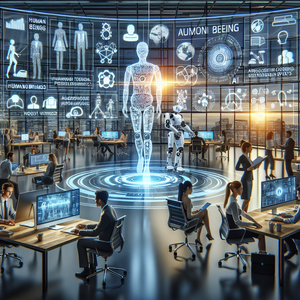
How Automation Is Transforming the Job Market and Where New Opportunities Lie
Imagine walking into a bustling coffee shop where your order is taken by a friendly touchscreen, your latte is brewed by a robotic barista, and payment is processed without a cashier in sight. This scene may sound futuristic, but it’s already becoming a reality in some parts of the world. Automation and artificial intelligence (AI) are not just buzzwords; they’re reshaping industries, workflows, and the very nature of work itself. For many, this shift brings uncertainty. Will my job be replaced by a machine? Am I prepared to adapt to these changes? Studies from organizations like the Office for National Statistics (ONS) and McKinsey suggest that jobs involving repetitive and predictable tasks are particularly vulnerable. Positions such as cashiers, data entry clerks, and even some white-collar roles are at risk of being automated. But this isn’t simply a story of loss. The same technologies that displace jobs are also creating new opportunities in fields we could barely imagine a decade ago. From AI ethics to robotics maintenance, the rise of automation is sparking demand for roles that require creativity, critical thinking, and human ingenuity. In this article, we’ll explore the jobs most at risk, highlight emerging career opportunities, and provide actionable steps to future-proof your career.
Job Summaries:
Jobs Most at Risk of Automation:
- Automation excels at tasks that are repetitive, routine, and easily codified.
- Jobs such as cashiers, data entry clerks, warehouse and manufacturing workers, customer service representatives, and truck drivers are particularly vulnerable to automation.
- While these changes might seem alarming, automation transforms the skills and roles businesses need rather than rendering human workers obsolete.
Emerging Career Opportunities:
- The rise of automation is creating new fields of work requiring creativity, emotional intelligence, and technical expertise.
- Examples include Automation Risk Analyst, Robotics Process Automation (RPA) Developer, Human-Machine Interaction Designer, Ethical AI Researcher, Digital Transformation Consultant, Robotics Maintenance Engineer, and Reskilling Program Manager.
- These roles highlight how automation can lead to innovative career paths.
Preparing for the Future Workforce:
- Adaptability is key to thriving in the era of automation.
- Practical tips include investing in continuous learning, focusing on human-centric skills, embracing change, networking strategically, and staying informed about industry trends.
- These steps can help individuals future-proof their careers and stay ahead in a rapidly evolving job market.
Automation is not just transforming the job market—it’s redefining how we think about work itself. While some roles may fade away, new opportunities are emerging that tap into the unique strengths of human workers. By staying adaptable, continuously learning, and leveraging your creativity, you can position yourself to thrive in the workforce of tomorrow. Instead of fearing automation, let’s embrace it as a tool for innovation and progress, creating a future where humans and machines work together to achieve more than ever before.
Explore More Jobs

